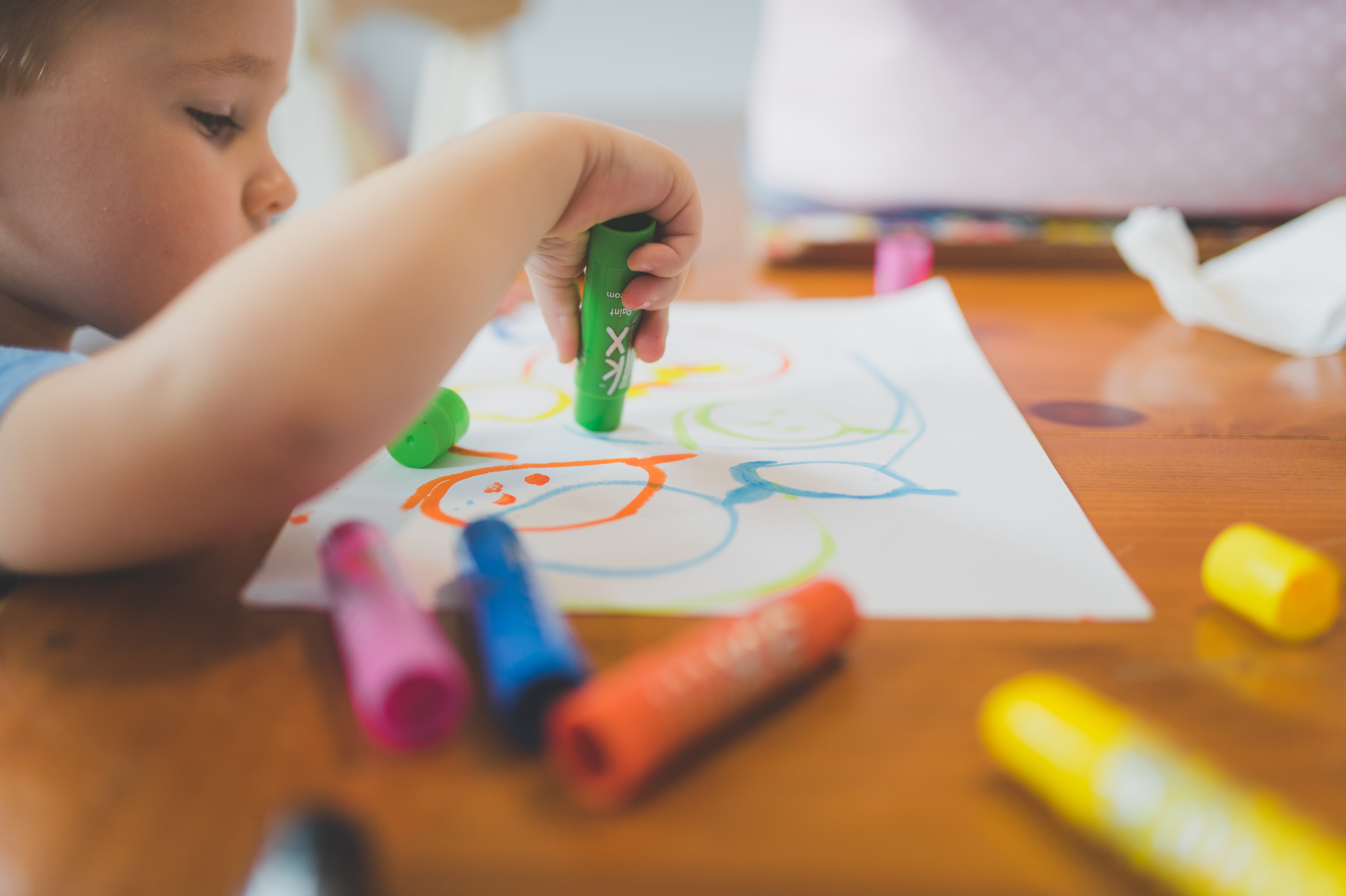
At Maryvale, we believe that building a foundation for lifelong success at school and in life begins early. For this reason, our Early Childhood Education program is designed to provide a safe and engaging learning environment for infants and toddlers that focuses on the whole child. Our teachers plan age-appropriate activities to provide young children with opportunities to experiment, learn social skills, and follow their inspiration in a safe space. When infants are supported with creative, exciting activities throughout the day, they feel more engaged and nurtured. Developing into successful people is rooted in supportive, healthy experiences during infancy and early childhood.
How Early Childhood Education Supports a Child’s Development
A child who benefits from healthy development between birth and fifth birthday can count on a lifetime of educational, social, and personal success. The early years are foundational for a child to experience a sense of safety, purpose, belonging, and agency. The brain’s architecture begins to form during early childhood, influenced by a child’s first interactions with the parents and caregivers. What happens during these years will significantly impact a child. If these early experiences are not positive, it could have a potentially negative impact on their ability to thrive at school, build healthy relationships, and seek economic prosperity.
If a child suffers from adverse experiences in their early development, such as unstable housing, neglect, family violence, unsafe childcare, and poverty, they are immediately at a significant cognitive disadvantage. Research indicates that interventions such as high-quality early learning services can reverse the damage of these adverse experiences. For this reason, a nourishing early childhood environment is especially important for children who grow up in marginalized or disadvantaged communities.
Social Skills in Early Childhood Education
Early childhood education instills young children with a sense of respect and care for themselves and others, which translates to a desire to learn. One area of early childhood development that childcare environments and educational spaces are uniquely equipped to offer children is developing healthy social skills. While infants in an early childhood education environment are under the constant watch and touch of caregivers, toddlers and young children have the personal space and structured classroom time to do specific activities on their own. Spending some parts of a school day engaged in quiet, solo activities gives children a healthy sense of curiosity, autonomy, and patience. These experiences enhance their ability to manage their needs and feelings, follow directions, and feel a sense of pride and ownership when they can solve something independently.
A structured classroom environment will also help children learn to engage with their peers and their teachers. Many preschool-aged children will form meaningful bonds with their teachers and aides, which is critical to their ability to build trust and resilience outside of their families. Teachers can also help model appropriate ways to manage feelings, disagreements, and differences. Children can learn to behave harmoniously in a social setting through these mediated interactions, asking their peers for permission, collaborating, cooperating, and sharing.
Early Childhood Education at Maryvale
At Maryvale, we have two Early Education Centers located in Duarte and Rosemead. We offer an enriching variety of learning activities at both centers designed to develop a child’s skills and lay the foundation for their future success in school and life. Our versatile curriculum blends guided instruction with small group activities and collaborative play. We carefully consider the whole child and adapt to meet children where they are, accounting for various learning styles, lifestyles, and personal backgrounds. We integrate indoor and outdoor activities, and we incorporate technology when appropriate.
Young children learn best when they are not pushed to perform or achieve anything beyond their scope. In this spirit, early education gives children the space they need to explore, ask questions, talk things out, and role-play. Teachers create an environment where children have structured and unstructured time to tap into their inner curiosity at a pace that feels right for them. As a result, children create a solid cognitive foundation that will improve their ability to focus, pay attention, and retain knowledge at a later age. Formal education does not begin until Kindergarten, when children aged five or six often find themselves in large classrooms with limited teaching staff and supervision. If this is a child’s first exposure to a learning environment, this can be overwhelming, and children may miss opportunities for learning as they adapt to engaging with unknown adults and children.
Because we work to assess the best path forward for each child, our teachers are well equipped to determine which activities will enrich, engage, and challenge them according to their personal needs. The result is an encouraging, fun learning environment that instills curiosity, a joy of discovery, and creativity. Our teachers are caring, compassionate, and attentive. They value each child’s innate interests and skills and consider children from a holistic perspective, including their mental health, developmental progress, and cultural and familial circumstances. We are dedicated to understanding where children come from to nurture the best and build their capacity to flourish.






